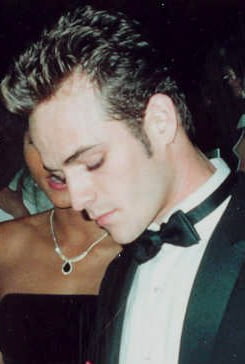
“Mad, bad and dangerous to know. That was him and that was me.” Speaking about himself and Lord Byron, Dylan McKay was the coolest guy at West Beverly High School and teen idol for an entire generation of teenagers in the 90’s. Played by actor Luke Perry in the long-running show Beverly Hills, 90210, his character loved literature and classic movies, yet was a bad boy with charisma to burn. His long sideburns, wavy hair and black Porsche gave his thousands of teenage fans a fantasy that has not been forgotten.
Perry went on to play many roles in films and television such as “Buffy the Vampire Slayer”, “Terminal Bliss”, “Eight Seconds”, and most recently “Riverdale” and the soon to be released Tarantino film “Once Upon a Time in Hollywood”.
His sudden death on March 4th sent shock waves through the legions of his now grown-up fans. How could he have died of a stroke at such a young age? No one was prepared for his loss. But it turns out that Luke Perry himself had in fact prepared for his departure. After a colon cancer scare a few years earlier, he created an estate plan.
Earlier this year, Luke Perry suffered a serious stroke that was followed by an additional stroke. There was no chance of recovery. While Perry lay in the hospital under heavy sedation, his family had to make a decision whether or not to continue life support. Fortunately Perry had apparently created an Advance Healthcare Directive as part of his estate plan. An Advance Healthcare Directive allows one to make his or her wishes known regarding end of life care. Having an Advance Directive enables the family to follow the wishes of the person on life support when they can no longer communicate. Without this guidance, families must bear the full burden of their decisions.
In addition, if family members disagree about what to do, a Probate Court Order may be needed to terminate life support or continue it. This process played out publicly in the Terry Schiavo case. And because Perry had been active and healthy only a week before his stroke, the hospital may have required legal documents to end life support.
In 2015 after his colon cancer scare, Perry reportedly created a will leaving everything to his two children, 18-year-old Sophie and 21-year-old Jack. At that time it is assumed that he also created an Advance Directive and a Revocable Living Trust. The creation of a Trust prior to his demise allows Perry’s assets to be passed to his children without court intervention (probate). The creation of a Trust also means his assets will not be known to the public. If Perry did not have a trust, his assets would likely have to go through probate, meaning all documents would become public record.
The only potential twist to Perry’s estate planning was his engagement to Wendy Madison Bauer at the time he died. Had he updated his trust to include her? If they had married prior to his passing Wendy could possibly have inherited part of his estate as a “pretermitted” spouse. Because they were simply engaged, Perry would have had to update his original will and trust or create a new one in order for Wendy to inherit.
For all of those who think they are too young to think about creating a Trust or Estate Plan, Perry’s story provides a good lesson.
Luke Perry was barely middle-aged and in the midst of an active life when he tragically died.
For more information about Revocable Trusts and Estate Planning, including the Advance Health Care Directive, contact our office at 925-322-1795 for a consultation.
